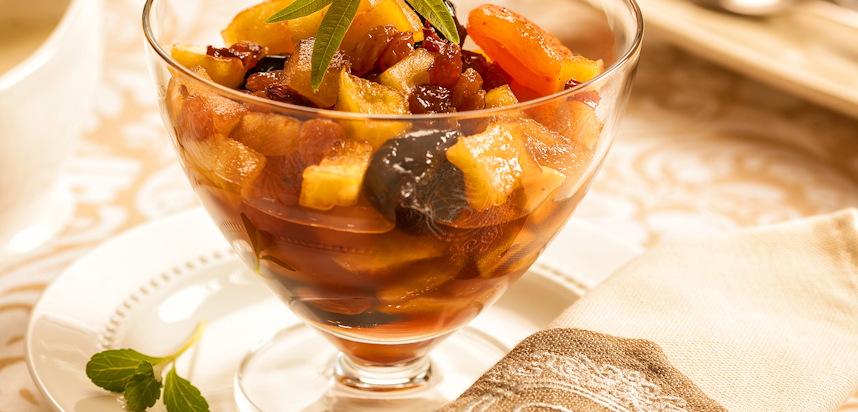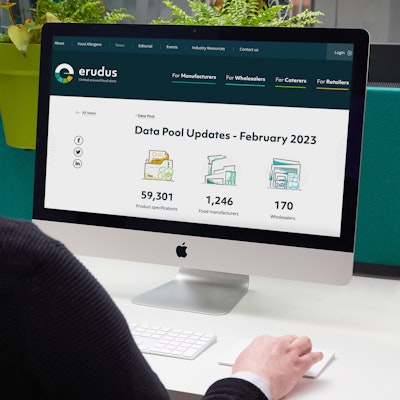Making food go further with Erudus
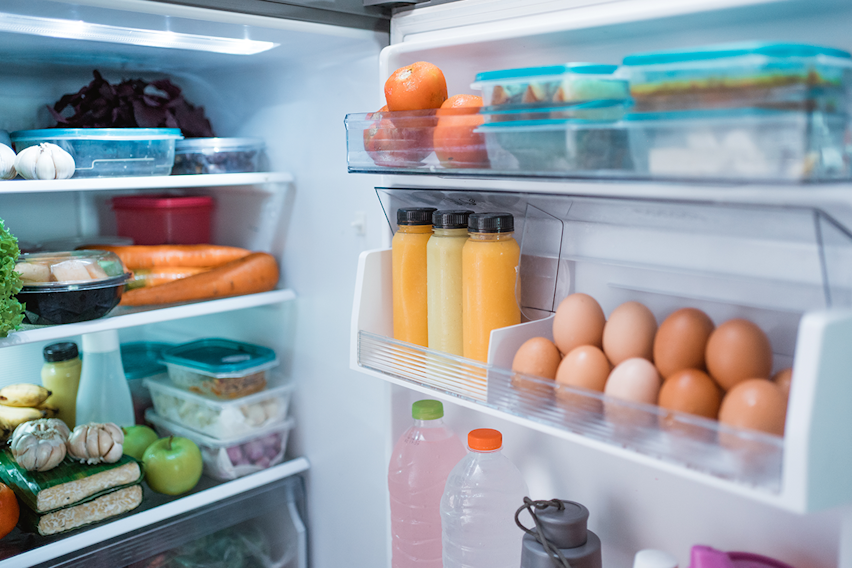
The Food Standards Agency (FSA) recently revealed that their research indicates that not only are consumers currently feeling worried about being able to afford food, but that almost a third had eaten food past its use by date and some had even taken to switching their fridge off to cut down on energy bills.
Whilst this research applies to consumers, foodservice has also been hit hard by the cost of living crisis and the rising prices of ingredients and though most food businesses are unlikely to do something as drastic as turn off their fridge, surely the temptation to cut corners has never been higher.
That’s why we’ve rounded up our best stories for helping food last longer without compromising on hygiene and safety, to help you cut down on costs and make your ingredients and dishes go further...
Food Safety Cheat Sheet - Chilling
All and any foods with a “use by” date should be stored in the fridge or freezer.
Not only does this prevent you having to throw out produce that is past its use-by date (most food can be stored safely in a freezer safely for at least a couple of months), but chilling and freezing prevents food from entering the temperature danger zone of above 8 degrees celsius and below 63 degrees celsius, the perfect breeding ground for harmful bacteria.
Our cheat sheet pulls together all the best tips and tricks when it comes to freezing, chilling and defrosting.
Read the full story here.
"We know many people are worried about food affordability right now and our evidence shows that people are finding ways to save money where they can. It’s not a good idea to turn off the fridge or eat food past its use-by date as these things can lead to a higher risk of you becoming ill with food poisoning.
Your fridge is a useful appliance that not only keeps your food safe, but can help cut down what you end up throwing out. Keeping your fridge cold enough, 5°C or below, will prevent bacteria from multiplying on your food and make it last as long as it can. You should also keep food with a 'use by date' in the fridge and think about freezing it on or before the day of the date if you’re not going to use it.” Emily Miles, FSA Chief Executive
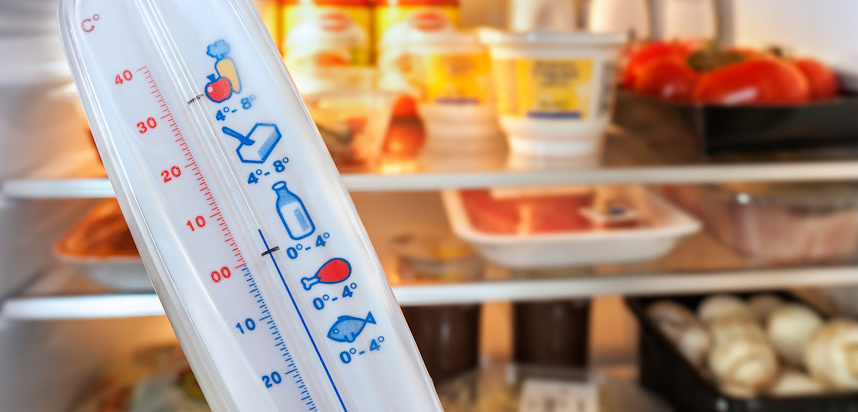
Not only should your fridge always be switched on, it should never be at a temperature below 5 degrees celsius. This is to ensure all food remains properly chilled and safe to eat.
Christmas food to make now use later
Last year, when the availability of ingredients was equally as erratic as it is now, we created a Christmas menu of easily preservable spins on festive menu favourites that can be prepared and then used as needed. Which means that these foods and dishes are also great for making in bulk (and taking advantage of the cost-effectiveness of bulk buying) or made when the ingredients are not at their premium price.
Read the full story here.
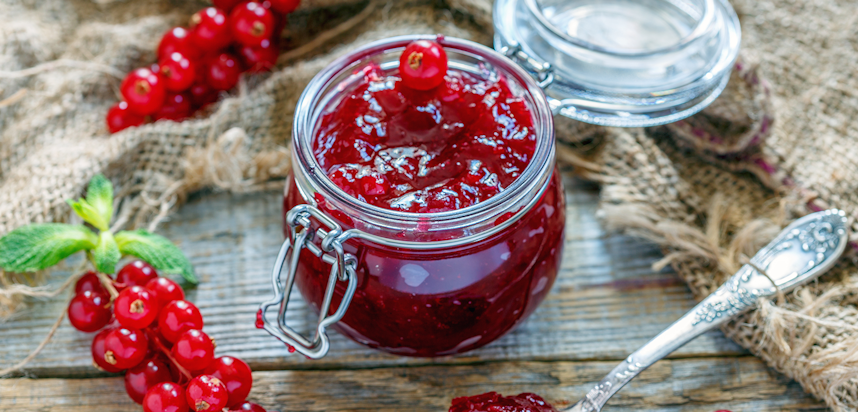
Shelf life
The FSA’s report shows that when rising costs are involved, shelf life becomes less of a priority for many people. With best before dates for products such as biscuits this is less of a concern than use-by dates for meat and fish. It’s important for both those in foodservice and consumers at home to understand the different terms around shelf life and their rules and laws.
Our guide to shelf life breaks down all of these different elements, and helps you to understand which products you can make go further after the best before date (such as stale bread for breadcrumbs) and which you must throw away.
Read the full story here.
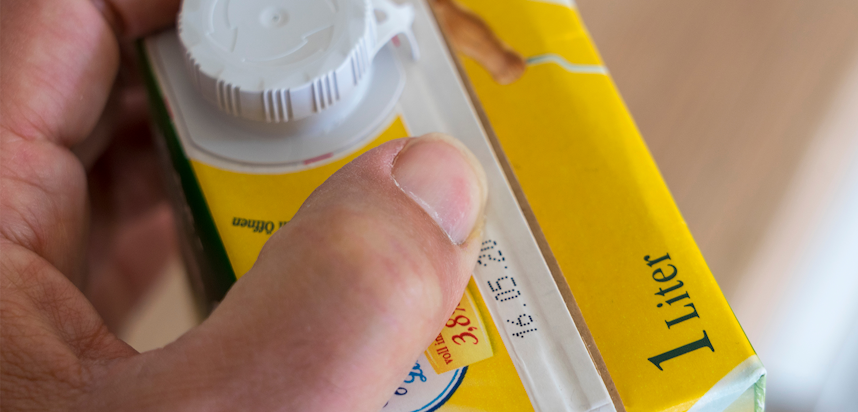
Recipe Builder
Profit margins are crucial when it comes to running a food business, but it’s easy to make them an afterthought when planning the perfect menu and then committing to purchasing ingredients for a dish that will make very little money.
The Erudus Recipe Builder allows users to calculate the cost of an entire recipe, and even the cost of each serving or portion as ingredients are added, making it easy to manage profit margins (as well as nutritional and allergen content) and keep all your dishes within budget.
Find out more about Recipe Builder here.
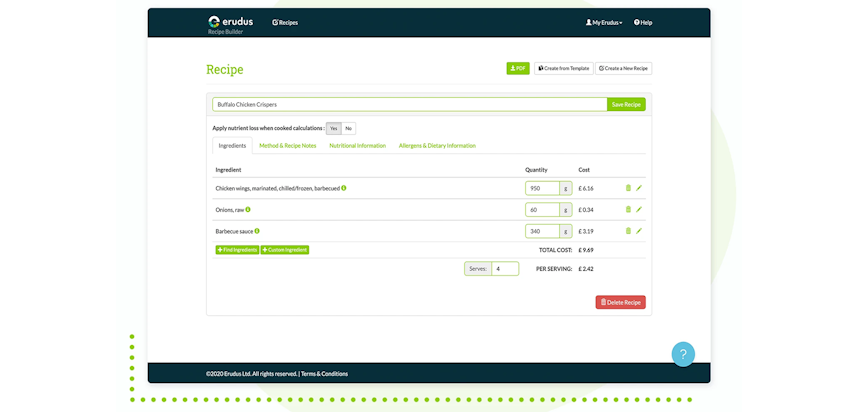
Vegan menu tips
Incorporating plant-based dishes into your menu is a great idea for many reasons - with more people than ever following a vegan diet it ensures you cover all customer bases for one - but they can also be a lot cheaper to produce than meat-based meals - especially domestic fruit and vegetables. Lentils and pulses are also a cost-effective choice.
We recently rounded up a whole host of vegan menu tips in celebration of November’s World Vegan Month.
You can see all the tasty tips here.
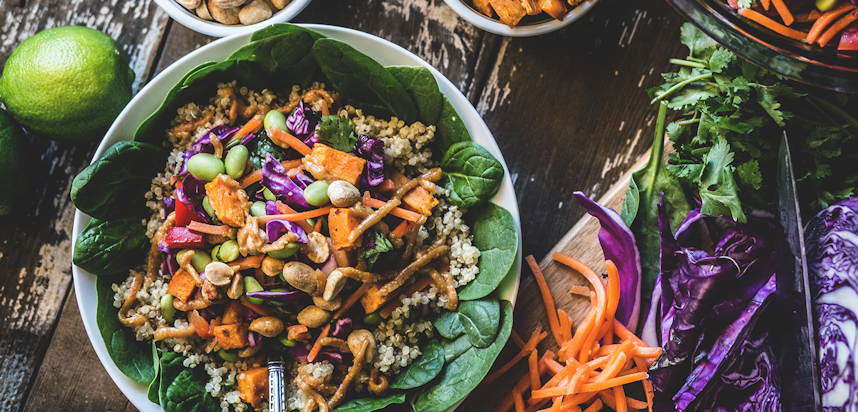
The haute cuisine Christmas menu
Now, haute cuisine sounds like it would be expensive and often it is, but that doesn’t necessarily mean the ingredients are high-cost. It simply means that the cooking and dishes are so exquisite they’re considered the top of the culinary food chain.
The good thing about haute cuisine is that a little goes a long way - items that are so rich and packed with flavour that only a small portion is needed to sate the appetite, and our haute cuisine Christmas menu is specially designed for those working with confinements.
Read the full story here.
